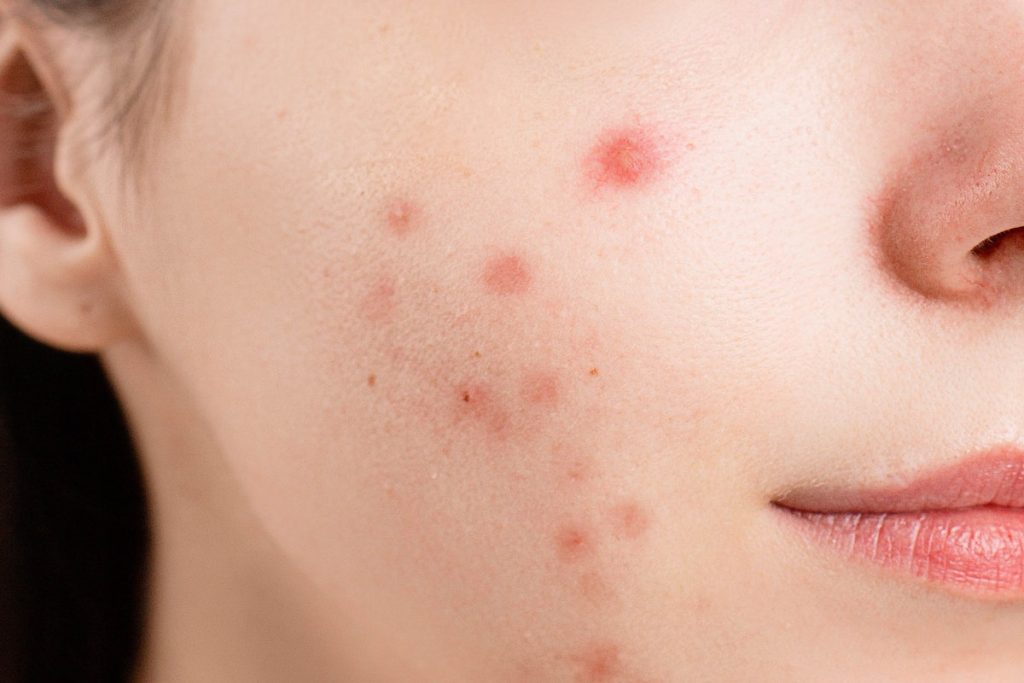- Acne is a common skin condition caused by clogged pores, often influenced by hormonal changes, genetics, diet, stress, and environmental factors.
- Severe acne often requires professional intervention, and understanding its causes can guide effective treatment.
- Hormonal imbalances, genetics, dietary factors, stress, and environmental triggers commonly contribute to severe acne.
- Acne can involve makeup or concealer, medication, laser, and topical treatments.
- Seeking professional medical advice is crucial for managing severe acne, as it helps identify the most effective treatment.
Acne is a common problem faced by millions worldwide, but in some cases, it can be a severe issue that requires professional intervention. While many factors contribute to the growth of acne, identifying the underlying causes is crucial to finding an effective treatment. Here’s what you need to know about acne, how it can happen, and how to deal with it.
What is Acne?
You might have seen it: red, pus-filled pimples on your face, neck, chest, or back. That’s acne—a skin condition that affects many people at some point. Clogged pores cause acne due to excess dead skin cells and sebum (oil). When these become infected with bacteria, they can cause the inflammation and pus that makes acne so noticeable. Various problems can cause severe acne growth. Here are some of the common ones:

1. Hormonal Imbalance
Hormonal imbalances commonly cause acne in teenagers, pregnant women, and menopausal women. Hormonal changes can trigger the overproduction of sebum from the sebaceous glands, which clogs the hair follicles and promotes inflammation. Hormones that contribute to acne growth include androgens, estrogen, and progesterone.
2. Genetics
Acne can be hereditary, and people with a family history of acne are more likely to suffer from severe acne. Genetics can also influence the skin’s sensitivity to triggers such as pollution, stress, and dietary factors. If you have a family history of acne, taking preventive measures such as maintaining good skincare habits and avoiding triggers is essential.
3. Diet
The food you eat can affect your overall health and skin health. Eating a high-glycemic-index diet, including white bread, sugar, and fried foods, can spike blood sugar levels and trigger acne growth. Dairy products can also cause acne, especially in people who are lactose intolerant or have an allergy to milk proteins.
4. Stress
Stress can trigger acne growth by triggering the production of cortisol, a hormone that promotes inflammation and sebum production. Stress can also cause you to pick at your skin or touch your face more often, which can spread bacteria and cause further breakouts. Reducing stress through meditation, exercise, and mindfulness can help alleviate acne symptoms.
5. Environmental Factors
Environmental factors such as pollution, humidity, and harsh climates can trigger acne growth by clogging pores and irritating the skin. Exposure to UV rays, especially from tanning beds, can also worsen acne. Protecting your skin from environmental factors by wearing protective clothing and using high-quality skincare products can help prevent acne growth.
Dealing With Severe Acne
There are various ways you can deal with severe acne. Here are four of the most common ways:
Make-Up
One of the easiest ways to cover up acne is to use makeup or concealer. However, it’s important to choose products specifically designed for acne-prone skin, as regular makeup can clog pores and worsen breakouts. Check out the best makeup for acne online to ensure you get the right makeup for your face. Look for one with natural ingredients like zinc and tea tree oil.

Medication
Certain medications can help reduce acne, such as antibiotics, retinoids, and isotretinoin. Antibiotics can help clear bacteria and prevent the growth of cysts. Retinoids are topical creams that can help unclog pores and even skin texture. Conversely, Isotretinoin is a powerful drug that can permanently reduce sebum production and clear acne.
Laser Treatment
Laser treatment has become increasingly popular in recent years due to its effectiveness in treating even severe cases of acne. Lasers target the bacteria responsible for breakouts and reduce inflammation while stimulating collagen production, which helps improve skin texture and tone.
Topical Treatments
Topical treatments such as benzoyl peroxide, tea tree oil, and salicylic acid effectively treat mild to moderate acne. Benzoyl peroxide helps reduce bacteria, while salicylic acid can unclog pores and exfoliate the skin. Tea tree oil is an excellent natural remedy for acne as it helps reduce inflammation and fight off bacteria.
Acne is a common problem, but with the help of professional medical advice, you can find an effective solution to your acne problems. Whether it’s through medication, laser treatment, or topical treatments, there is sure to be something that works for you! Take the first step by speaking to your doctor or dermatologist to discuss the best way of managing your acne.


